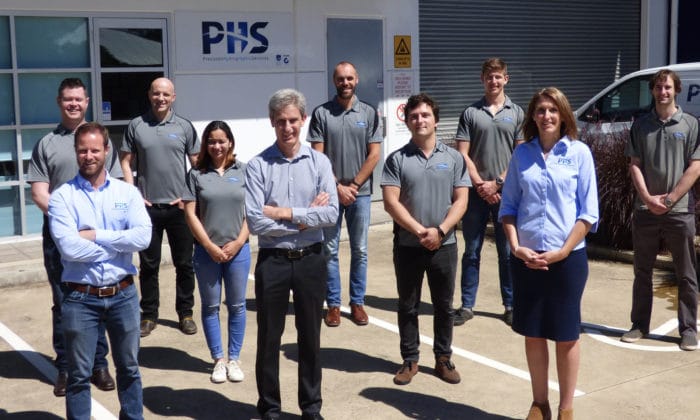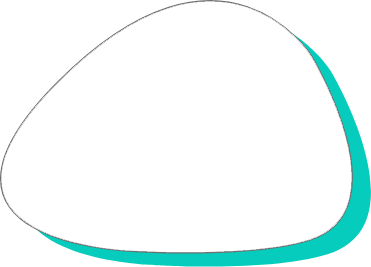With offices in California, Alaska, the Pacific Northwest and Midwest, eTrac Inc. provides hydrographic survey and custom integrated services to multiple sectors within the marine industry.
For over a decade eTrac has served as user, OEM and beta tester for R2Sonic. This symbiotic relationship has allowed R2Sonic to obtain real user input, useful data with which to improve and has afforded eTrac the opportunity to stay at the forefront of MBES technologies and to provide input to influence some its direction. As the company has grown, eTrac has incorporated a number of R2Sonic integrated systems into its day-to-day operations. These systems have offered clients an expanded array of high-value, differentiated survey capabilities.
A decade-long partnership
Michael Mueller and Erik Mueller, co-founders of eTrac, explain that around 2009, eTrac decided to expand and upgrade its sonar capability. “We realized that our use of traditional singlebeam and side scan sonars could be greatly improved by switching to higher resolution multibeam systems,” he says.
After developing an analysis matrix of available industry options at the time, eTrac opted to purchase a Sonic 2024. First tests with the system were conducted in the San Francisco Bay, reports Mueller.
“We were surprised to be collecting remarkably clean high-resolution data within a few hours.” he says. “We revisited an area that we had mapped with our older sonar and immediately saw the benefits of the narrow beam widths. The new system yielded a three-fold increase in resolution to our previous system. This moment set the tone for the coming years of our growth trajectory.”
“It turns out we purchased the very first Sonic 2024 sold in the US. We were comfortable with this risk and saw something in the R2Sonic team that instilled confidence. Looking back now, more than 10 years later, I can say that we feel extremely lucky to have found R2Sonic while they were launching their first sonar systems into field service. Having broadband and multi-frequency capabilities along with the small form factor, light weight, and low power consumption, we were able to build a fleet of vessels around the R2Sonic multibeam systems.
Multiple applications, one device
Initially deploying the device for state-mandated pipeline surveys in Alaska, Mueller notes: “We were performing infrastructure mapping in 120 feet of water at 400kHz, searching for scour and obstructions near the pipelines. We met that need in our first season within weeks of taking delivery of the first sonar. Once the project was completed, we shipped the device to Washington and then to California and used it for the entire dredging season. This work was different from the Alaska project. We were performing dredge payment surveys at 200kHz…
...We avoided having to purchase a second multibeam sonar to perform these surveys. The flexibility of the single R2Sonic sonar was and continues to be of great advantage to us.”
The capabilities were also expanded over time, via software updates. “We didn’t realize at the time that R2Sonic would also add TruePix®, UHD, UHR, water column, quad mode and other features. After testing them out on repeat projects, we were able to understand their capabilities and incorporate them into our processing workflow. Where we were previously only delivering bathymetric multibeam data to our clients, we found we could now also offer snippets for sediment classification, higher resolution information with UHD and UHR to map utilities, piers and obstructions…
... The quality of our data increased and we were able to provide extra value without increasing our price. These updates have helped us deliver new applications for the data we deliver to our clients without needing to update hardware.”
“The firmware updates, we were told, had been planned by R2Sonic in the years before the release of their first sonar. Even the first Sonic 2024 they delivered to us more than 10 years ago has become more capable each year. It has been upgraded to be just as functional as the dozens of sonars we have purchased and sold to our clients over the years.”
Since then, Mueller explains that eTrac has integrated R2Sonic systems in yet further ways, “to introduce them into scenarios where other sonar systems were too large, power-hungry and expensive to install. R2Sonic systems, in our eyes, continue to push the boundaries of low power, compact size and high quality data.”
An enduring and fruitful partnership
Of eTrac’s lasting collaboration with R2Sonic, Mueller says: “There is a basis at R2Sonic that’s rooted in innovation and responsive service.” He adds that being in touch with the engineers is particularly fruitful. When it comes to eTrac’s place as a partner to R2Sonic for testing, “It’s always been ‘yes’ for us. New and exciting features have sprouted into new hardware and firmware when we support and serve their team.
... I believe that eTrac and – I don’t think it’s a stretch to say this - the hydrographic community at large, has benefited from R2Sonic pushing the boundaries of the sonar technology.”
Efficient dredge surveys across Australia’s major ports
Every Day a New Expedition
The right technology for a global survey leader
- 1
- 2
- 3






R2Sonic Multibeam Echosounders

